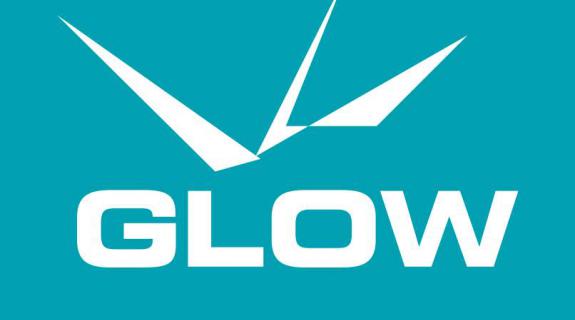From humble roots in co-founder and CEO Peter Levin’s New York apartment, the digital marketing and creative agency Glow has grown to serve clients ranging from Cartoon Network to Syfy to the Empire State Development’s Division of Tourism and the I Love NY brand. Along the way, it’s weathered two technology industry storms and expanded its offerings from rich media executions and micro-websites initially to interactive marketing campaigns, social strategies, branding initiatives, games and mobile apps for shows such as 12 Monkeys, Shark Tank, Duck Dynasty and many more.

Before founding Glow in 1999, Levin and his partner Ted Kacandes honed their chops at the online marketing arm of Y&R, Luminant Worldwide (then Brand Dialogue). Friends from childhood, they enjoyed a symbiotic work dynamic. Even as a kid, Levin told Brief, “I was always taking things apart that weren’t broken and trying to fix them.” With Kacandes designing projects and Levin building, they were able to land visionary clients from the get-go, including eMagine, a startup that was selling mp3 music downloads for 99 cents a pop before the emergence of iTunes; and also a little network called HBO, which was just beginning its reign as ruler of premium original content with shows like The Sopranos and Sex in the City.
Glow’s first major effort for HBO was a first-ever homepage takeover of The Weather Channel’s homepage. The project, a rich media execution for the miniseries Band of Brothers, saw World War II fighter planes flying over and dropping bombs on the page. It was a clever disruption that had the misfortune of appearing just prior to the attacks of 9/11. HBO promptly pulled the ad, but the quality of Glow’s work formed a bond that continues to this day, 14 years later, and that now includes work on the network’s social strategy and digital PR. In fact, a looking at recent Glow efforts for HBO provides a nice encapsulation of the company’s journey toward becoming sophisticated digital and interactive storytellers. From the days of dropping bombs at weather.com, Glow now helps create elaborate experiences such as Flipadistrict.com for HBO’s Real Time with Bill Maher, wherein viewers could take to social media to help the lefty political comedian take down their chosen conservative congressional candidate on midterm Election Day.

Historically, digital marketing efforts have too-often been tacked on when a show is already in or nearing the end of production, with a launch date looming large and little time left for innovation. But Glow, said the company’s president of digital communications Howie Kleinberg, makes sure it’s “at the table from day one, sometimes before we’ve even seen an episode or even key art or digital representation of the show, talking about what the vision of the program is through the eyes of the director, the producer.” With HBO, said Kleinberg, this approach has allowed for Glow to truly become “an extension of their team, and it’s in part why they are as successful as they are and it’s in part why we are having the success with them that we are. Everyone owns a piece of it. there’s tremendous ownership and desire. It doesn’t feel project-based. It’s big thinking to continue to push them forward in social.”
Nowhere was this relationship more evident than Season 3 of HBO’s hit comedy Veep. In addition to concocting digital creative that turned the show’s epic key art into beautiful site takeovers with gently flowing waves, Glow created a mobile interactive experience that established a campaign call line where fans could call in and hear a custom recorded message from Matt Walsh, the actor who plays Presidential hopeful Selina Meyer’s hapless director of communications, Mike Mclintock. The character’s hilariously incompetent message prompted viewers to text “VEEP” to a unique call code, which triggered personalized texts with a custom share card that could be downloaded straight from the phone and distributed on social outlets to show support for Julia Louis-Dreyfus’ sharp-tongued leading lady.

“With the advent of the ability to buy social and spend money on Facebook, spend money on Twitter, [those technology platforms] became ad placements versus social communities,” said Kleinberg. “Because you can spend so much money on those platforms, the need to think lessens and the need to spend increases.”
Glow has mastered the art of “identifying what people are really like, and identifying the message [as opposed to] the platform,” said Jesse McLean, creative director for Glow. “It’s important to remember that the things people do aren’t driven by, ‘is it Facebook or is it Twitter?’” The agency’s ability to hone in on an experience that transcends the different technologies available and connect at a human level comes, in part, from the agency’s good fortune to work on shows that are hard not to love, like Adventure Time, Syfy’s Ascension and Cinemax’s The Knick. “We’re lucky in that we’re fans of the brands,” said McLean, “and that fandom translates into good work because we can empathize with our audience, and we can empathize with our audience because we are the audience.
“One of the cool things about working with TV,” he continued, “is you have a long canvas, you’ve got an 8- to 14-week window of storytelling you can do… When you have a long lead time you can get people really excited and tell a story that doesn’t have to end in 30 seconds.”
Tags:













































__twocolumncontent.jpg)











